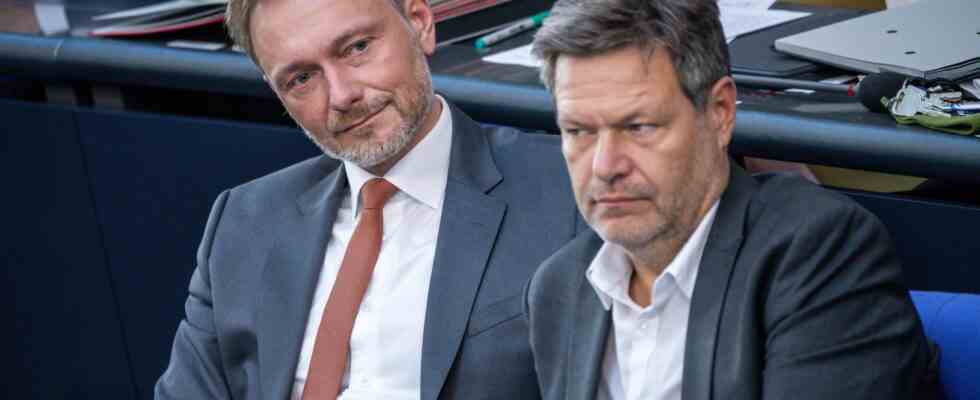analysis
Status: 09/21/2022 3:40 p.m
The discussion about Uniper and the gas levy turns into a dispute between Finance Minister Lindner and Economics Minister Habeck – good government communication looks different. But the real problem lies deeper.
Looking at the costs of the Uniper rescue can make you dizzy: the federal government is spending eight and a half billion euros for the almost complete takeover of the energy company. Another eight billion are needed to replace loans and guarantees from the previous main shareholder Fortum.
As early as July, the federal government had promised billions in loan assistance via the state-owned KfW bank, which, according to Economics Minister Robert Habeck (Greens), has already been used for the most part. In total, the Uniper rescue costs the federal government almost 30 billion euros.
Intricate details
This is not the end of the road yet. Because in order to get Uniper back on its feet, future losses from the gas business must be cushioned. That’s actually what the gas levy is for. It was brought into play by Habeck after the original plan of passing on higher prices directly to respective customers proved difficult. The idea of the gas levy: the losses made by the large gas importers due to the lack of gas deliveries from Russia should be shared among all gas customers.
“Orienting the group to the future”, energy economist Claudia Kemfert, German Institute for Economic Research, on the nationalization of Uniper
tagesschau24 4:00 p.m., September 21, 2022
As reasonable as the thought sounded, more and more problems arose with the details, the keywords: VAT, district heating customers, fixed network contracts, free riders. The more complicated the details, the more difficult communication became, which is particularly evident in the differences between the Ministry of Economics and Climate led by Habeck and the Ministry of Finance led by FDP leader Christian Lindner.
Example of VAT: According to Habeck, Lindner should ensure that the gas levy is exempt from VAT. But that is not possible in the allocation model chosen by Habeck, according to the answer from the Ministry of Finance. As a compromise, a general reduction in VAT on gas was promised, which will be discussed in the Bundestag this week. Such a relief helps private households – but not the economy, which is groaning massively under the increased energy prices.
Then the Ministry of Economic Affairs raised legal concerns: A complete nationalization of Uniper would possibly result in Uniper no longer receiving any income from the gas surcharge. The Ministry of Finance is responsible for examining this legal issue, said Habeck at the press conference on Wednesday morning. Lindner’s reply follows only a little later: The test has been completed, the gas levy can also be paid in the event of the nationalization of Uniper, which has now been announced. Good government communication?
Who pays for the losses?
It is understandable that Habeck is trying to get rid of the gas surcharge. The discussions about the difficult details have clearly scratched his image. But the announcement that the gas surcharge will now be launched and at the same time questioned will cause new irritations.
The problem – and Habeck rightly pointed this out: if the state foregoes the revenue from the gas levy, the gas importers’ losses have to be offset in some other way. The proposal by the Düsseldorf economist Jens Südekum to take the billions from the federal budget is unlikely to please Finance Minister Lindner at all.
And the idea of SPD parliamentary group leader Matthias Miersch to skim off so-called excess profits in the electricity sector in order to replace the levy could quickly reach its limits: not only that there is no such skim yet – the hoped-for income is actually for the relief provided by electricity customers. However, the money cannot be distributed more than once.
The problem lies deeper
The discussion about the billion-euro rescue of Uniper and the question of how to proceed with the unpopular gas levy ultimately point to a deeper problem: Germany is becoming poorer due to the energy crisis. According to calculations by the Kiel Institute for the World Economy, the German energy import bill is expected to increase by 123 billion euros this year and by a further 136 billion euros in the coming year. These billions migrate abroad and are missing from consumers, companies and the state.
The big challenges of the coming weeks will be to distribute the costs – and at the same time to secure the energy supply. This includes not only the rescue of Uniper, but above all a higher offer. For far too long, Habeck’s Ministry of Economics has focused primarily on savings. But savings in the economy mean nothing more than production cuts.

